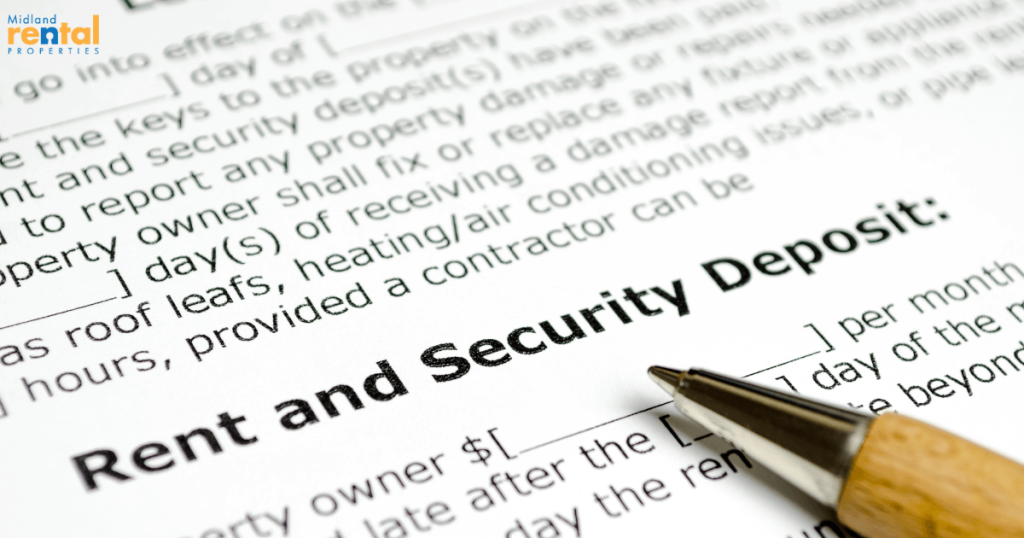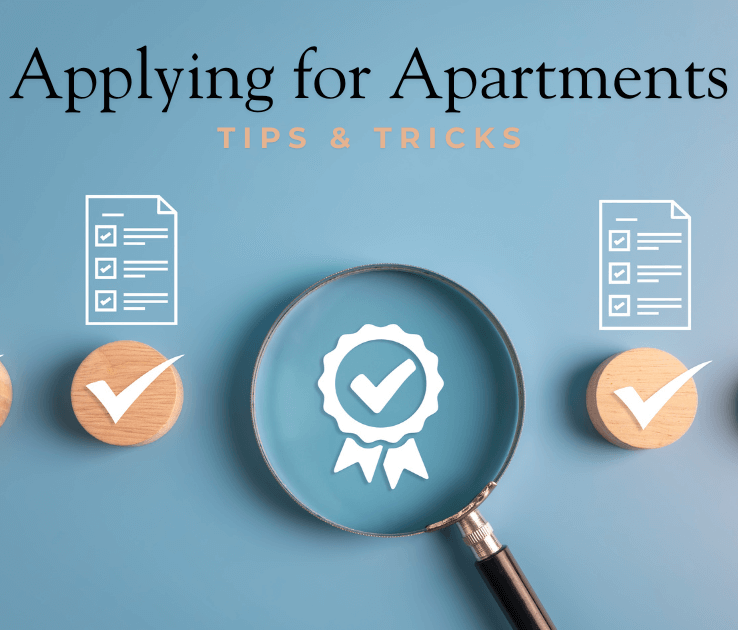If you’re renting, one of the first upfront costs you’ll face is the security deposit. Many renters pay it without fully understanding what it covers, why landlords require it, or—most importantly—how to ensure they get their rental deposit return when moving out.
In this guide, we’ll explain everything you need to know: what a security deposit is, how much you should expect to pay, what it covers, and the exact steps to guarantee you get your money back.
- What Is a Security Deposit?
- How Much Is a Typical Security Deposit?
- What Does a Security Deposit Cover (and Not Cover)?
- How to Get Your Security Deposit Back: Step-by-Step
- Common Reasons Tenants Lose Their Deposits
- How Long Does It Take to Get a Security Deposit Back?
- Security Deposit Laws Tenants Should Know
- How to Dispute Security Deposit Deductions
- Security Deposit Return Letter Template
- Real-Life Example
- FAQ: Security Deposits
- Final Thoughts
- Glossary of Key Terms

What Is a Security Deposit?
A security deposit is a sum of money landlords collect at the start of a lease to protect themselves against tenant-related risks. Think of it as a financial safety net.
It covers:
- Unpaid rent (if you move out early or skip payment).
- Damage repair (beyond normal wear and tear).
- Cleaning costs (if you leave the unit dirty).
- Lost items (like keys, garage remotes, or appliances).
Quick Note: A security deposit is not an extra month’s rent. It’s your money held in trust until the lease ends. If you uphold your lease agreement, you should get it back—often with interest, depending on your state.
How Much Is a Typical Security Deposit?
The amount varies by state, landlord, and rental type. Most renters pay one month’s rent, though some landlords charge up to two months.
| Rental Type | Average Security Deposit |
|---|---|
| Apartment | 1–2 months’ rent |
| Furnished unit | 1.5–2 months’ rent |
| With pets | Extra $200–$500 pet deposit |
State Example: In California, landlords can charge up to two months’ rent for an unfurnished unit and three months’ rent for a furnished one. In Michigan, the maximum is 1.5 months’ rent.
What Does a Security Deposit Cover (and Not Cover)?
✅ Typically Covered:
- Unpaid rent.
- Repairs for tenant-caused damages.
- Deep cleaning required after move-out.
- Replacing missing fixtures, blinds, or appliances.
❌ Not Covered:
- Normal wear and tear (faded paint, minor carpet wear, small nail holes).
- Upgrades or renovations the landlord chooses to make.
- Property improvements not related to damage.
Tip: If a landlord tries to charge you for “wear and tear,” you can dispute it. Most state laws define this clearly to protect tenants.
How to Get Your Security Deposit Back: Step-by-Step
Follow this checklist to maximize your chances of a full security deposit refund:
- Read your lease – Know exactly what move-out requirements exist.
- Document everything – Take dated photos/videos at move-in and move-out.
- Provide notice properly – Stick to the timeline required (usually 30–60 days).
- Do a deep clean – Don’t just tidy up. Scrub appliances, bathrooms, and carpets.
- Fix small damages – Patch nail holes, replace burnt-out bulbs, tighten loose handles.
- Return all keys/remotes – Even a missing garage remote can cost $50–$100.
- Request a move-out inspection – Some states (like California) allow a pre-inspection so you can fix issues before deductions.
- Provide a forwarding address – Without it, landlords can’t send your refund.
Action Step: Make a simple “move-out checklist” 2 weeks before leaving to stay on track.
Want to avoid costly rental mistakes? Check out our 20 Common Renter Mistakes Guide so you keep more money in your pocket.
Common Reasons Tenants Lose Their Deposits
- Leaving trash or belongings behind.
- Large wall holes or stained carpets.
- Unauthorized pets or smoking damage.
- Skipping the final rent payment (a common mistake).
Important: Skipping your last month’s rent because you “already paid a deposit” is a red flag. Landlords can still sue for unpaid rent and keep your deposit.
How Long Does It Take to Get a Security Deposit Back?
By law, most states require landlords to return deposits within 14–30 days of move-out, often with an itemized list of deductions. This is sometimes called the security deposit refund time frame.
| State | Typical Deadline |
|---|---|
| California | 21 days |
| Michigan | 30 days |
| Texas | 30 days |
| New York | 14 days |
If your landlord fails to return your deposit or provide a deduction list within the legal window, you may have grounds for small claims court.
Stat to Know: A 2024 Rent.com survey found that 26% of renters lost part of their deposit, most often due to cleaning charges.
Security Deposit Laws Tenants Should Know
Each state has unique laws, but common rules include:
- Deposit limits – Many states cap deposits at 1–2 months’ rent.
- Interest payments – States like Massachusetts, Illinois, and New Jersey require interest if deposits are held more than 1 year.
- Itemized deductions – Landlords must provide receipts or written statements for any money withheld.
For a state-by-state guide, check out the Nolo Landlord-Tenant Laws Resource.
Looking for ways to make renting stress-free? Explore our Tips for First-Time Renters Guide for smart strategies.
How to Dispute Security Deposit Deductions
If your landlord withholds money unfairly, here’s how to fight back:
- Review your lease – Make sure deductions aren’t allowed under your agreement.
- Gather evidence – Photos, videos, cleaning receipts, and witness statements.
- Send a security deposit return letter – Politely demand the return of your funds.
- Cite state laws – Mention your state’s deadline and tenant rights.
- File in small claims court – If ignored, most cases under $5,000 can be handled there.
Tip: Courts often side with tenants who have strong documentation.
Security Deposit Return Letter Template
Here’s a simple template you can customize:
[Your Name]
[Your Address]
[City, State, ZIP Code]
[Date]
[Landlord’s Name]
[Landlord’s Address]
Subject: Request for Security Deposit Return
Dear [Landlord’s Name],
I am writing to request the return of my security deposit of $[amount] for the property located at [address]. I moved out on [move-out date] and left the property in good condition, with all keys returned.
According to [state law], security deposits must be returned within [number] days. Please return my deposit in full, or provide an itemized statement of deductions as required.
Forward the deposit to:
[Your Forwarding Address]
Thank you for your prompt attention.
Sincerely,
[Your Full Name]
Use this letter if your landlord delays or refuses to return your deposit.
Real-Life Example
- Maria’s Story – Maria moved out of her apartment and was charged $600 for “carpet cleaning.” She had photos showing the carpets were in good condition. She filed in small claims court and won her full deposit refund plus court fees.
Lesson: Always take photos—documentation is your best protection.
FAQ: Security Deposits
1. Is a security deposit refundable?
Yes, if you follow the lease and leave the property in good condition.
2. Can my landlord keep my deposit if I break the lease?
Yes, usually part or all of it. The landlord can also pursue unpaid rent.
3. Can I use my security deposit as my last month’s rent?
No. Unless your lease specifically allows it, landlords can still charge for unpaid rent.
4. What if my landlord refuses to return my deposit?
Send a demand letter. If ignored, you can file in small claims court.
5. Do all states require security deposits?
No, but almost all landlords do. State rules limit amounts and timelines.
6. What is the difference between a security deposit and a cleaning deposit?
A security deposit covers rent/damages. A cleaning deposit is often non-refundable and only for cleaning.
7. What should I do if I have roommates?
Decide in advance how the deposit will be split and who receives the refund check.
8. Do landlords have to pay interest on deposits?
In some states, yes—like Massachusetts, Illinois, and New Jersey. Always check local laws.
Final Thoughts
A security deposit is one of the largest upfront costs of renting, but with the right preparation, it’s also one of the easiest to get back. By knowing your rights, documenting your rental, and following move-out procedures, you can secure your rental deposit return quickly and stress-free.
Bottom line: Take care of your rental, keep clear records, and know your state’s laws—you’ll walk away with your deposit (and peace of mind).
At RentMid, we share rental tips that save you money and protect your peace of mind—browse our full library of guides today.
Glossary of Key Terms
- Itemized Deductions – A detailed list of costs a landlord withholds from your deposit.
- Escrow Account – A separate account where some states require landlords to hold tenant deposits.
- Wear and Tear – Minor, expected deterioration of a property from normal use.










2 Comments
Comments are closed.